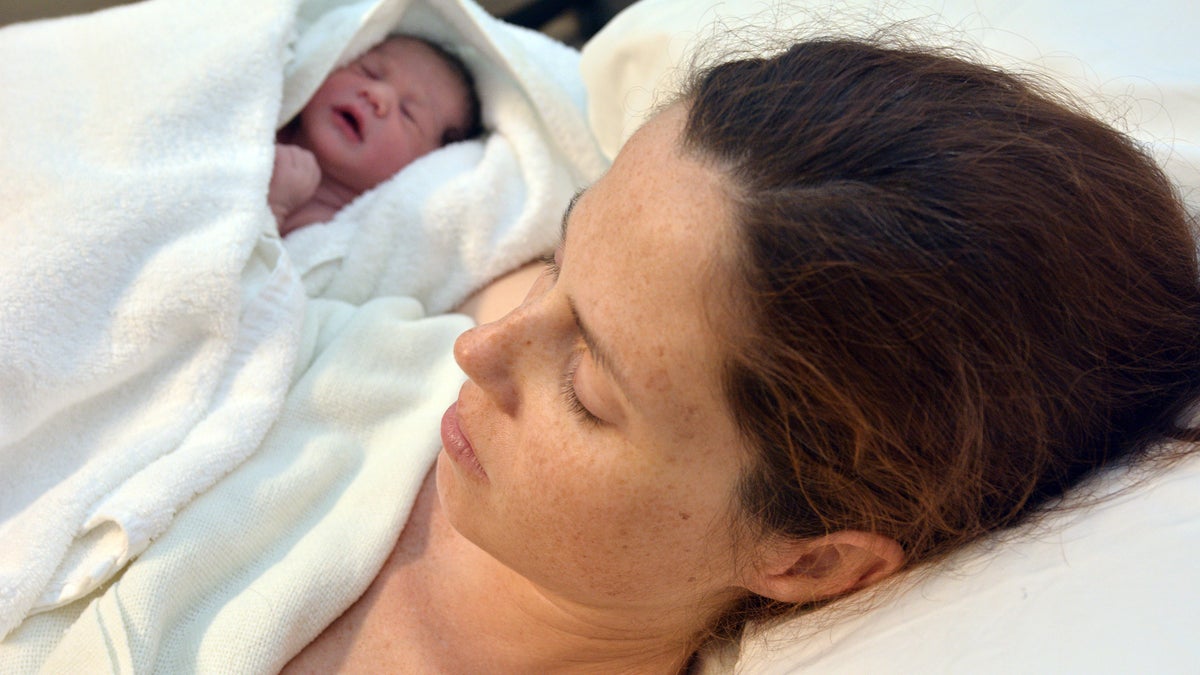Pennsylvania Medicaid to expand access to long-acting contraceptives

Women's health specialists
Pennsylvania’s Medicaid is about to start covering long-acting contraception for women right after they give birth.
“This is a big deal,” said Bette Begleiter, deputy director of the Maternity Care Coalition.
Having that immediate option can make a big difference in preventing unintended back-to-back pregnancies and other health problems, Begleiter said.
“And that’s everything from their own general health and well-being to much more serious consequences like infant and maternal morbidity and mortality,” she said, referring to the findings of a 2015 Philadelphia maternal mortality report.
Long-acting, reversible contraceptives include implants and intrauterine devices, also known as IUDs.
Dr. Sindhu Srinivas, director of obstetrical services at the Hospital of the University of Pennsylvania, said they’re very effective in preventing pregnancies.
“They’re in contrast to a pill that you have to take every day, or a shot you have to take every few months,” she said. “They can stay in there for multiple years, and they’re reversible because they can always be removed and your fertility will resume.”
She and other women’s health specialists, such as the American College of Obstetricians and Gynecologists, said one of best moments to offer IUDs is right after childbirth. For a variety of reasons, a woman may miss her follow-up visit and the opportunity to get a long-acting contraceptive inserted at that point, said Dr. Dan Guilfoil, director of labor and delivery at Hahnemann University Hospital.
“There are lots of people who, after having a baby, leave the hospital and then — because their life is turned upside down — they don’t always make it back to their appointments,” Guilfoil said.
But cost has been a major barrier to getting an IUD or other long-acting contraceptive right away.
Guilfoil said he sees women all the time who have Medicaid coverage and who want that option immediately after giving birth, but Medicaid doesn’t specifically cover the contraceptives. Instead, it gives hospitals an all-in-one bundled payment for labor and delivery services.
“The cost [of long-acting, reversible contraceptives] ranges from $300 to $1,000, and if you don’t get reimbursed for the actual device, then that’s a significant burden on a hospital to provide that,” he said.
The hospital has found some workarounds for women with serious health needs through a private grant, but, effective Thursday, the state’s Medicaid fee-for-service program will specifically cover the devices as an addition to the bundle payments to hospitals for labor and delivery services. It will also increase contraceptive reimbursement rates to outpatient providers of family planning services.
“We’ll be able to do this way more because it will be stocked and in the hospital, and there will be a mechanism for reimbursement now,” said Guilfoil, who roughly estimates that up to 20 percent of the some 200 moms who deliver babies at Hahnemann monthly could stand to benefit. “Removing this financial hurdle I think is a real positive for women and family planning.”
As for the additional cost to the state, Department of Human Services Secretary Ted Dallas said he expects net savings. He estimated the move will save the state nearly half a million dollars in the first year, and up to $1.4 million in the following years, through reducing unintended pregnancies and their associated costs. That can range anywhere from $13,000 to $20,000.
“The risk to the mother, the outcome of the birth and the health of child can also be affected by having back-to-back unintended pregnancies,” he said. “So this really helps the mother with the maternal health, and it also saves us money in the long run by avoiding some of those costs.”
More than a dozen other states now have similar Medicaid policies.
The change also follows a general uptick in women seeking long-acting, reversible contraceptives since the election. The director of Planned Parenthood of Southeastern Pennsylvania said inquiries have gone up “tenfold,” with many women worried about the future of their birth control coverage under the Affordable Care Act.
WHYY is your source for fact-based, in-depth journalism and information. As a nonprofit organization, we rely on financial support from readers like you. Please give today.

